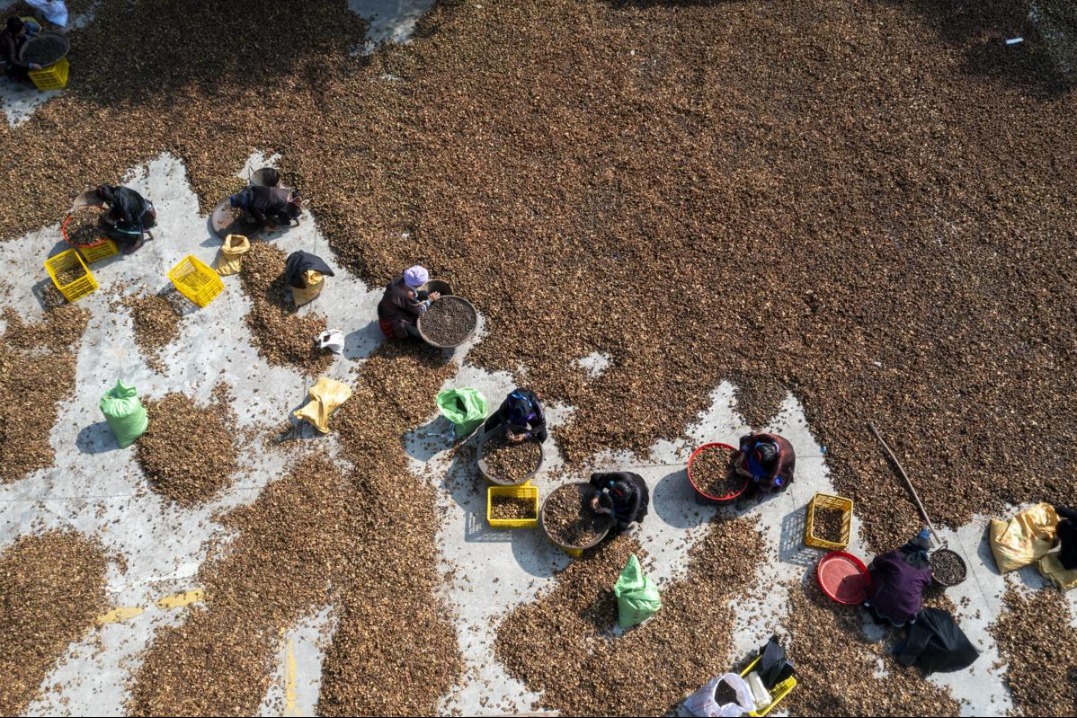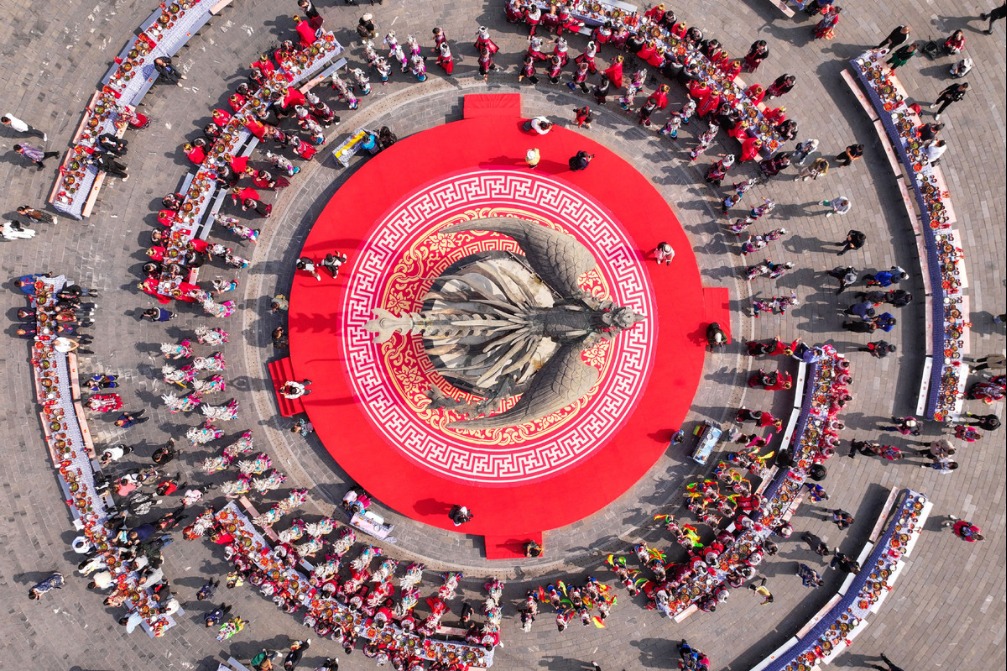Collaboration to help create future math teachers

China and Brazil will deepen educational ties and open new avenues for collaboration in mathematics education through teacher exchanges, working together within BRICS and G20 framework to contribute to the rise of Global South.
The two countries are establishing a sustainable collaboration in math education following a 9-day training program launched in Shanghai in September for Brazilian top math teachers.
The 2024 Shanghai Training Program for Brazilian Gold Medal Math Teachers, hosted by UNESCO's Teacher Education Center, marks China's first major step in introducing its math education methods to Latin America.
Huang Xingfeng, a professor at the center and one of the organizers of the program, said the program has focused on classroom observations and lesson study, emphasizing cross-cultural exchange and advancement of high school mathematics education for top talent.
The program brought 17 Brazilian educators and officials to Shanghai for a 9-day intensive exchange.
The teachers engaged in high-level dialogues, mathematics education seminars and visited top high schools, where they observed exemplary math lessons and participated in cross-cultural teaching activities.
The Brazilian educators, who were strictly selected from a national math competition, witnessed innovative applications of digital technology in Shanghai's math classrooms, observing lessons such as "Matrix Transformation with a Graphing Calculator "and "Angles Between Lines and Planes".
They reflected on Shanghai's math teaching methods through workshops, while also collaborating with Chinese teachers on STEM curriculum and student career planning, said Huang, who is also a professor from Shanghai Normal University.
"A unique feature of the program was a structured lesson study centered on the concept of power functions," he said.
The lesson on power functions, which was not included in the high school math curriculum of Brazil, was taught by Brazilian teachers to Chinese students, he explained.
A team of Brazilian and Chinese participants worked together to bridge the language gap, translating Portuguese into English and then into Chinese, enabling smooth collaboration and successfully engaging students.
Throughout the program, Chinese educators also shared international teaching resources with the Brazilian team to deepen their understanding of Chinese high school math instruction. "This engagement provided inspiration for both sides, enriching the teaching approaches of everyone involved," Huang said.
The interactions offered the Brazilian teachers a direct look at Shanghai's innovative approaches to math education, particularly in nurturing top-performing students, he added.
Professor Jose Antonio Puppim de Oliveira, the initiator of the program and a visiting professor at Fudan University, said the goal of the program went beyond merely exposing Brazilian teachers to China's teaching methods, but also amplifying these experiences upon their return to their home country.
After completing the training, all participating teachers and math competition committee members will attend the Symposium of the National Association of Mathematics Teachers at the State University of Campinas in Brazil to share what they have learned.
"This annual event, attended by university educators who train future math teachers, will serve as a platform for spreading China's educational approaches to a broad academic audience in Brazil," Puppim said.
Additionally, each teacher from the program has been tasked with extending these learnings by integrating a teaching method they learned in China in their classrooms and sharing their experiences with at least five other local schools, he said.
For example, while detailed lesson planning is common in Shanghai, it is less emphasized in Brazil, where teachers can now experiment with this approach to improve classroom effectiveness, he added.
Although China and Brazil share similarities in land size, teacher backgrounds and school infrastructure, the Shanghai trip has exposed many differences in math education.
Puppim also mentioned that in Brazil, textbook selection varies widely, often leading to inconsistencies even within the same school. In China, textbooks are approved by the education ministry, and typically standardized across regions, providing a coherent progression from grade to grade.
Based on the Shanghai experience, Brazilian education could benefit from reforms such as equipping teachers with effective lesson-planning techniques and reducing teachers' classroom workload, he said.
Huang from the UNESCO Center said the program will be organized every two years in the future as a sustainable education collaboration program between China and Brazil.
zhaoyimeng@chinadaily.com.cn




































